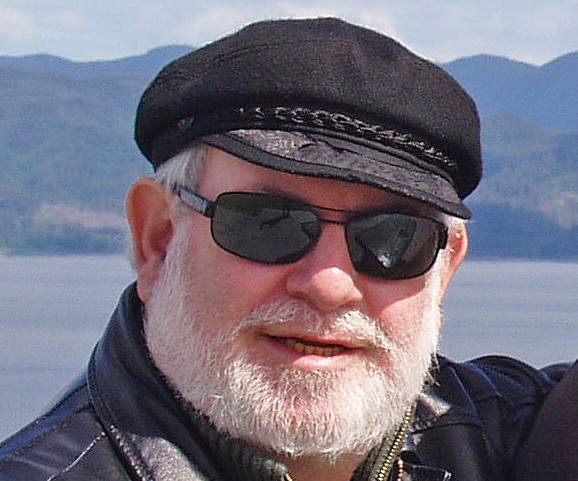Herb Levine (1944), retired historian, journalist and editor. Born in Brooklyn, New York City. Degrees from Columbia, University of Minnesota and Yale (Ph.D, 1969, in modern German and European history). One Book “Hitler’s Free City: The History of the Nazi Party in Danzig” (1973) and many scholarly articles. Journalism includes a series of articles in the ’70s in “The Nation.” Taught at SUNY Buffalo, DePauw University, Free University of Berlin. Civilian trainer for U.S. Army Berlin in the ’80s and ’90s. Editor of “International Community” in Berlin, translator and free-lance journalist. Managing editor of the “Palm Beach Jewish Times” in the late ’90s. Journalist and editor, LRP Publications, 2005-2012, covering the U.S. federal workforce. Currently a certified mediator. Lived in Munich, 1974-76, Berlin, 1976-97, Palm Beach Gardens, FL, 1997-2005, Tacoma, 2005 –.
In your opinion, what importance, if any, does the existence of a Jewish state have to you personally and to Jewish people in general?
“I feel deeply saddened at the idea the someday Israel might not exist, or perhaps might not have existed, as in Chabron’s “The Yiddish Policemen’s Union.” Israel has become part of the international Jewish identity, and therefore in some ways part of my identity. It is where over a third of my people live. When I visited and worked in Jerusalem for nine weeks in 1976, the experience definitely raised and altered my Jewish self-awareness (as did the much longer period of my life I spent in Germany).”
Do you feel committed in some way to defend the future existence of Israel?
“I reject BDS and have done so publically. As an American, I try to assure that my fellow citizens do not apply unduly harsh standards to Israeli government behavior, even when I make no secret of my disgust with that government and its behavior.”
Do you affiliate yourself with a specific confessional division in Judaism? What is your view regarding the dominance of the Orthodox division in Israel religious establishment?
“Yes, I am a Reform Jew. The dominance of the Orthodox (or ultra-Orthodox) in Israel’s religious establishment, and in aspects of its social policy, repels me.”
Do you feel morally responsible for Israel’s actions (such as its management of the Israeli-Palestinian conflict)?
“No.”
In your opinion, what is the main thing Israelis fail to understand about the reality of being Jewish outside of Israel?
“The galut has its own problems, different in each country, but generally Jews long settled there know how to deal with them. In particular, almost all Jews in the United States and Canada feel entirely committed to their nation and feel entirely American or Canadian.”
How would you describe Israel’s policy (formally and in practice) regarding its relationship with the Diaspora?
“Generally lousy, formally and in practice. In the United States, the Israeli governments under Netanyahu have shown no hesitation in attempting to intervene in American politics to support the Christian Republican right, which is abhorrent to most American Jews.”
In your opinion, does Israel have an obligation to defend and help Jewish communities in need?
“Yes, if the need is real, and if the local community requests it.”
Have you ever been to Israel? if you have, can you summarize your impression from the Israeli reality?
“The nine weeks I spent in Jerusalem in 1976, doing Holocaust research at Yad Vashem when I was living in Munich, were an extraordinary experience and deeply affected my sense of Jewishness, giving it another geographic and historical expression. Since I was at that time raising three Jewish children in Germany (eventually with three b’nai mitzvah in Berlin), the experience was very important to the family.”
Can you tell us a bit about the Jewish community in your hometown? Is it organized? Are there community activities?
“My original hometown in New York. Enough said. If you mean my current town of residence, I live now in Tacoma, WA, south of Seattle (since 2005). Seattle has a large and vibrant Jewish community with many alternative ways to live a Jewish life, but it is some distance away.
“Here in Tacoma we have Temple Beth El, my synagogue, which for years was the only synagogue in town. We now have a Chabad alternative, for those who prefer that form of worship. The community, as everywhere in the Western United States, was established in the late nineteenth and early twentieth century by families that set themselves up in greater or lesser prosperity as retailers and independent business people. Some of those families are still prominent in the synagogue.
“Membership has been declining, but slowly (as it has generally in this area since 2000 – – we haven’t done badly), and shows signs of stabilizing, perhaps with a modest rebound. Our congregation is welcoming and inclusive — many of our members, and officers, were not Jews at birth, still more are the children of ‘mixed marriages.’ Interest in Israel is there and real, but I would not say the connection to Israel is vital to our congregational life.”

